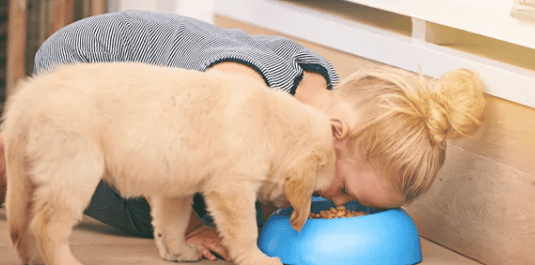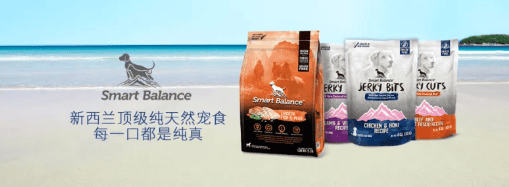Pet industry observation news: Recently, Petty Holdings released a record of investor relations activities. Petty pointed out that the company was surveyed by 63 institutions on February 21, 2024, and answered relevant survey questions.
Among them, when talking about the basic situation and future plans of Petty Shares’ domestic market business in 2023 and 2024, Petty Shares said that the domestic market business in 2023 mainly has the following characteristics:
p>First, the revenue scale shows rapid growth. Against the background of the gradual compression of agency business, the growth rate of independent brands is higher than the overall growth rate of domestic business;
Second, the company’s layout The multi-brand strategy focuses on investing in the two brands of Haoshijia and Jueyan, especially the Jueyan brand. Through the logic of hot products, we create best-selling single products and drive brand awareness. Old hot products drive new products and achieve rapid growth and expansion of the brand. Improvement of brand power;
The third is that Jueyan products focus on high-meat, purely natural product series, including planned staple food products, cultivating the minds of some users with the concept of "natural" and creating products with product strength. Brand power. Judging from the new users in 2023, a large number of users are imported replacement users. From the perspective of product differentiation and quality, Jueyan products have greater advantages among similar products. In 2024, Jueyan will further expand its product line. On the basis of ensuring high quality, it will also consider the affordability of domestic consumers.
At the same time, in 2024, Petty will also adhere to the current established brand strategy and increase the efficiency and intensity of launching independent brands. In the second half of the year, a batch of new staple food products with obvious differentiated characteristics, such as self-produced New Zealand staple grains and freeze-dried grains, will be launched one after another, bringing a certain increase to the domestic market business.
To this end, Petty will also re-adjust the offline channel strategy of domestic independent brands, basically changing from dealers to service providers to reduce the impact on online prices. Online channels are mainly operated by the company itself. Offline sales channels are also important channels for the company's future layout, including cooperation with well-known supermarkets such as Sam's and Costco. Currently, some new categories of products have been sold in supermarket channels. This will further promote the development of independent brand business. In addition, the pet store company further covers each city in the form of service providers and cooperates with certain representative pet stores to enhance brand exposure.

Regarding domestic sales production capacity, Petty Co., Ltd. specifically pointed out that the sales revenue of its own brands is mainly contributed by snack products, and most of its staple foods are manufactured by external factories, which affects the gross profit margin level to a certain extent. In the past two years, the company has been adjusting the production lines of domestic factories to adapt to the needs of the domestic market, especially its own brands. It has built two wet food production lines in the Wenzhou factory, and the original snack production lines will also be gradually transformed. , there are two main directions: one is to adapt to domestic market demand in terms of categories, and the other is to improve the automation level of equipment.

When talking about the main business plan for 2024, Petty Co., Ltd. said that the export business in overseas markets will show a certain degree of volatility in 2022 and 2023, mainly caused by various external factors, resulting in distortion of market demand signals. . Petty Shares believes that the export business will return to a normal development track in 2024, mainly in the following aspects:
First, from a market perspective, destocking in overseas markets has ended and market demand has returned. On the normal development track, customer expansion in the terminal market and inventory management will normalize, and purchase orders will return to a steady growth rhythm;
Second, the current raw material prices are relatively stable, and with the addition of Petty The shares have strengthened raw material procurement and inventory management, which is expected to further reduce costs and increase efficiency;
Thirdly, the continuous increase in the production capacity of Cambodian factories has brought scale effects, and New Zealand’s staple grain factories have entered the stage of large-scale production, which has brought certain The increase will help Petty Shares develop overseas markets, and the customer structure will be further optimized;
Fourthly, overseas markets are also changing. For example, online consumption continues to increase, which has also brought Petty Shares Opportunities to expand new customers and new channels.
As for the domestic market and self-owned brand business, Petty Co., Ltd.’s self-owned brand business has laid a relatively good foundation in the past two years. In 2024, it will continue to focus on brand and large single product strategies, and the products will be expanded to self-produced products. The staple food field is expected to drive independent brands to maintain high growth.
In addition, regarding New Zealand’s staple grain factories, Petty pointed out that the New Zealand staple grain factories have completed trial production and are about to enter the stage of large-scale production and commercial operation. There are already some orders in hand and it is expected that in three Entered the formal production and delivery stage in the month.

Petti believes that New Zealand factories have raw material advantages, cost advantages and equipment advantages. They use advanced Wenger equipment to create more competitive products and quickly occupy emerging markets. The customer base is mainly local New Zealand customers. Australian customers, well-known American brand customers and domestic customers. At the same time, New Zealand's staple food factories still give priority to supplying independent brands, and Petty is also actively preparing to enter the domestic market.
Except for the New Zealand factory, the capacity utilization rates of Petty Co.’s other factories are also worthy of attention. In this regard, Petty shares said:
In terms of pet snack products, Petty currently has two production bases in Wenzhou and Jiangsu, with a total production capacity of about 15,000 tons, mainly animal skin chews and plant chews. Glue and nutritious meat snacks and other products are mainly original export product lines. In addition, Vietnam has a snack production capacity of 15,000 tons, and the current capacity utilization rate is full. The Cambodian factory will be officially put into operation in 2022, with a production capacity of approximately 11,200 tons of pet snacks. It is currently in the stage of ramping up production capacity. In addition, the Alpine factory in New Zealand also has a snack production capacity of approximately 2,000 tons.

In terms of staple grains, New Zealand’s high-quality staple grain production line with an annual output of 40,000 tons has entered the large-scale production stage this year. The domestic Wenzhou factory has two wet grain production lines. The new staple grain production line is currently under construction and is expected to be partially operational this year. Put into use.
Pet Industry Observer will also continue to pay attention to the future market dynamics and intelligence of Petty Shares. Friends who are interested in this topic are welcome to leave a message in the comment area below for discussion, or add the editor's WeChat to communicate.

 扫一扫微信交流
扫一扫微信交流
发布评论